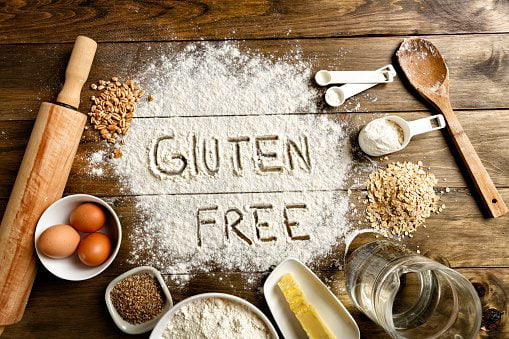Going gluten free can be a big help for anyone trying to heal their gut.

Starting any new diet can be challenging. However, by taking several small steps at the beginning, and by making sure you have a plan you know you will be able to stick with, getting the ball rolling on a new diet doesn’t have to be impossible by any means. We aren’t saying it will be challenging, but a little research is definitely going to go a long way.
That thought can definitely be applied to a gluten-free diet. The more you learn about the basics of a gluten-free diet, the easier it will be to make necessary changes to how you shop for, prepare, and eat food.
Getting Started On Your Gluten-Free Diet
One of the great misconceptions with a gluten-free diet is that it’s terribly limiting. This isn’t really true. Yes, you have to cut a few things out, but the list isn’t as substantial as some will have you believe.
A gluten-free diet can involve many steps. Here are the basics to guide you in the early stages:
- Identify the gluten-free groups:
Fruits, veggies, many kinds of meat and poultry, many kinds of fish and seafood, dairy, and beans/legumes/nuts are all safe food groups. Obviously, within this range alone, you can begin to see the possibilities. - Learn about grains:
There are many, many grains you can actually eat on a gluten-free diet. This can include rice, tapioca, beans, soy, potatoes, and gluten-free oats are just a few. - Learn about the alternatives:
There are numerous gluten-free alternatives available these days. An important step in embracing a gluten-free diet is to learn more about those alternatives, and find the ones that are going to appeal to you. Using alternative flours and grains, you should be able to find some appealing possibilities. However, it is important to make sure you’re reading labels carefully, ensuring that you are actually purchasing something that will be gluten-free. - Learn about the things you can’t have, or the things you need to be very careful about:
Read the labels carefully for products like soups, sauces, beverages, vitamins, supplements, and medicines. - Find a good 7-day program to get going:
A good 7-day gluten-free diet plan is ideal for getting started on the right foot. You can use one of these plans to establish a clear idea of your meals, drinks, and even snacks. - Consult a health coach:
Consider seeking out the advice of a health coach. They can help you to explore and fill in the blanks with your new diet.




